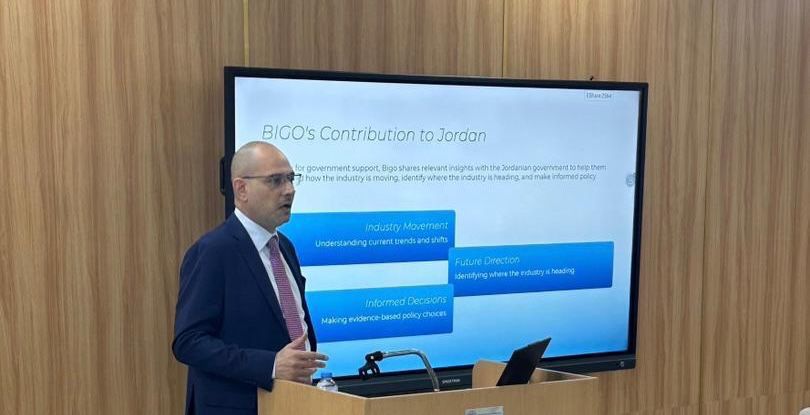
Industry 4.0 and Public-Private Discussion Take Centre Stage at Singapore-Jordan Capacity Building Course
The future of Industry 4.0 and the digital creative economy took centre stage at a high-level closed-door capacity building programme held at the Singapore-Jordan Regional Vocational Training Centre (RVTC) in Amman from 3 to 6 November 2025. Organized under the Singapore Cooperation Programme (SCP) and conducted by IPOS International, the capability building arm of the Intellectual Property Office of Singapore (IPOS), the training course on "Industry 4.0 and Innovation Management" brought together mid to senior government officials from Jordan and other countries across the Middle East, Africa, and Asia to discuss the challenges and opportunities of the fourth industrial revolution.
The event featured experts from Singapore and industry partners who shared their insights and experiences on Industry 4.0, innovation management, and governance frameworks. Discussions emphasized the critical need for collaboration across sectors and within industries to promote more agile and relevant regulatory frameworks in a time of rapid technological change.
According to the U.S. International Trade Administration, the ICT and digital economy sector in Jordan is expected to grow more than fourfold from USD 1.27 billion to USD 5.46 billion by 2033, Across the Middle East and Central Asia, the creator economy market is experiencing explosive growth at a compound annual growth rate of 18.80 percent, expanding from USD 10.93 billion in 2025 to a projected USD 36.50 billion by 2032.
Industry 4.0 has rapidly transformed manufacturing processes and supply-chain management worldwide, leading to greater data transparency and use of autonomous equipment. This transformation has fast-tracked the need for synergies between machine and human operators, as well as accelerated AI adoption and integration. The creative economy has also been profoundly affected, with barriers to entry nearly eliminated and vast amounts of data now shared within single timeframes.
Among the industry partners presenting was Bigo Technology (BIGO), one of Singapore's fastest-growing technology companies. The company shared its experience operating in Jordan, where it has grown from just two employees in 2019 to over 1,000 team members across offices in Amman and Irbid.
"This remarkable growth mirrors the potential we see in Jordan's digital economy," said a spokesperson from BIGO Technology. "The creative technology sector is not just about entertainment - it's about economic opportunity, job creation, and safeguarding communities. We are proud to share our experience with government and industry leaders who are shaping the future of Industry 4.0 in their countries. We also look forward to working and collaborating with regulatory agencies and governments to improve the experience for our users."
During the session, BIGO shared case studies to demonstrate that technology adoption and integration should not happen in isolation, but rather hand-in-hand with governance. Using Bigo Live as an example, presenters showed how platforms can work with governments to foster safe digital environments while gaining valuable insights into community trends and concerns. The case study highlighted the importance of regular engagement with regulatory bodies and BIGO’s commitment to sharing aggregated insights and working collaboratively with governments to address negative influences before they reach wider audiences.
The digital creative economy, which supports nearly 50 million jobs globally, was a focal point of discussion. The Gulf Cooperation Council (GCC)'s creator economy has grown 74 percent in just two years, reaching 263,000 content creators in 2025, demonstrating the sector's rapid regional momentum.
Other experts from academia and thought leaders also shared insights on the building blocks of Industry 4.0, including big data and its analysis, enterprise management, fintech, intellectual property management and other pertinent topics relating to governance.
The event underscored the importance of open communication and partnership to navigate the complexities of Industry 4.0 and to ensure that its benefits are shared across all stakeholders in the global economy.
About the Training Course
The "Industry 4.0 and Innovation Management" training course was organized under the Singapore Cooperation Programme (SCP). It was held at the Singapore-Jordan Regional Vocational Training Centre (RVTC), which was established under the Asia-Middle East Dialogue (AMED) framework. The course was conducted by IPOS International, the capability building arm of the Intellectual Property Office of Singapore (IPOS).








